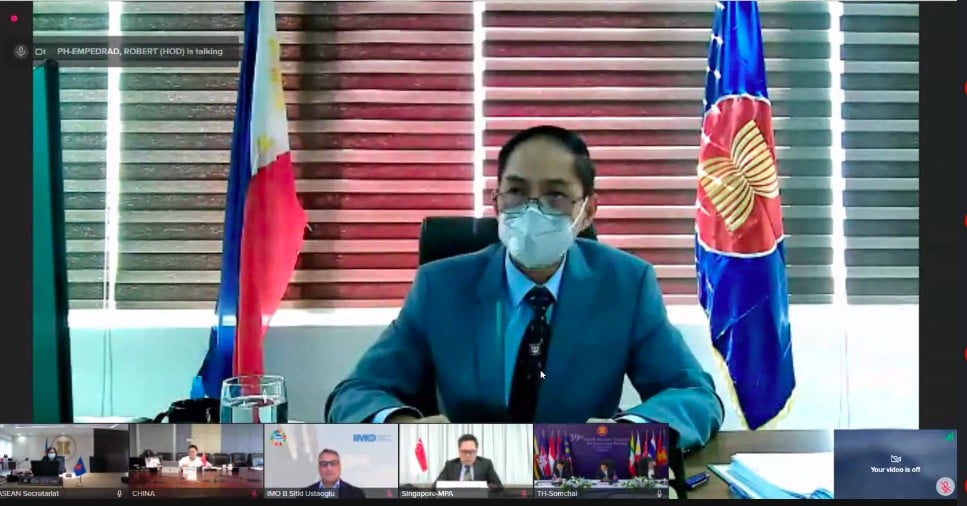
MANILA – The Philippines, represented by the Maritime Industry Authority (MARINA), has committed to becoming a major international hub for crew change during the 39th Meeting of the Maritime Transport Working Group of the Association of Southeast Asian Nations (ASEAN) as part of its role as a major provider of seafarers to the global labor market.
In a statement on Friday, MARINA said the meeting, held virtually for the first time on Thursday amidst the coronavirus disease 2019 (Covid-19) pandemic, also included the ASEAN’s other dialogue partners such as China, Japan, Korea, and the International Maritime Organization (IMO).
MARINA Administrator Robert Empedrad, who served as head of the Philippine delegation, said the Philippines will continue to cooperate with member states of the international maritime community for the “facilitation and safe movement of the world’s seafarers”.
“[Seafarers] are the lifeline of the world’s economy as such they are our essential workers. In the Philippines, our seafarers are our indispensable partners for our country’s economic development,” Empedrad said.
To date, he said the Philippines has already opened the Ports of Manila, Bataan, and Subic for international crew change—with more ports planned to open as crew change hubs in the future.
“Our maritime sector is working diligently to activate crew change hubs in the country to give maritime vessels the avenue to refresh their manpower, and to provide relief to our hardworking seafarers,” Empedrad said.
In a message, Department of Transportation (DOTr) Assistant Secretary Goddes Hope Libiran said these crew change hubs are required to have a ‘one-stop-shop’ to process the crew changes.
This, she said, include health screening (with RT-PCR testing), customs, immigration, and quarantine facilities.
“A location should have these requirements in place to be activated as a crew change hub. Once other ports are able to comply with these requirements, then they will be opened as crew change hubs,” Libiran said.
Maritime initiatives amidst Covid-19
During the meeting, Empedrad also noted the country’s “whole-of-government” approach to keeping the maritime industry afloat during the pandemic.
He said this includes several measures that ensure the operability of supply chains such as the use of automated systems to lessen personal transactions and the creation of a Shipping Protection Office to protect both domestic and international shippers against “unreasonable fees and charges” imposed by shipping lines.
He said the country is also working on the decongestion of its ports, has issued a directive to all shipping lines to provide cargo space and allocation for agricultural and food products with preferential cargo rates, and the extension of STCW certificates for seafarers still on-board ships.